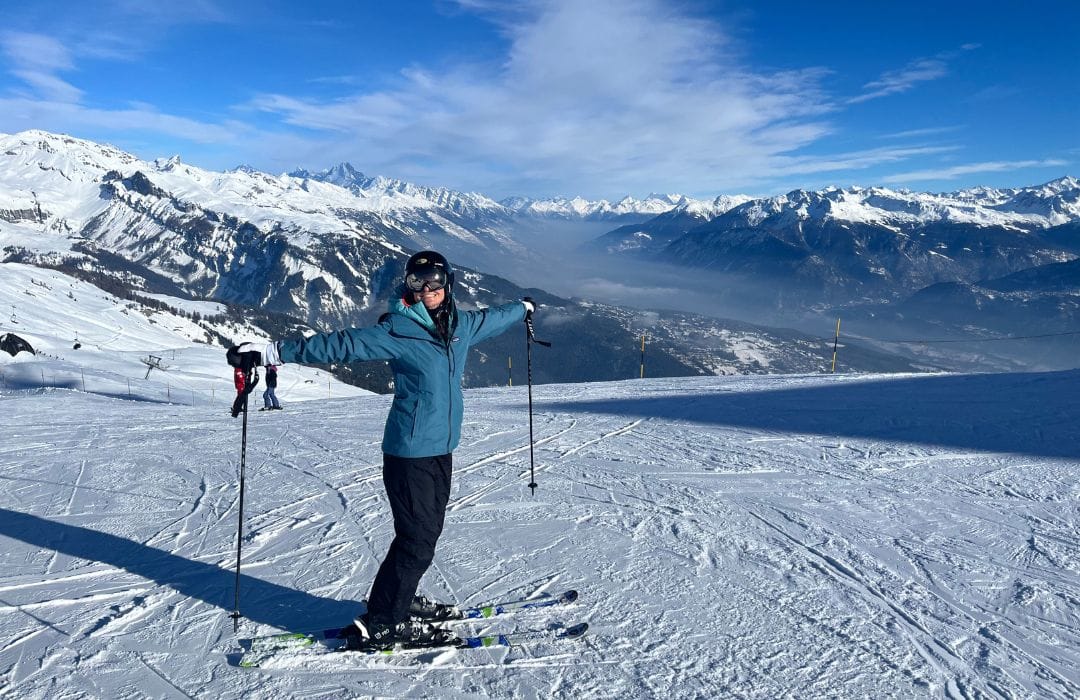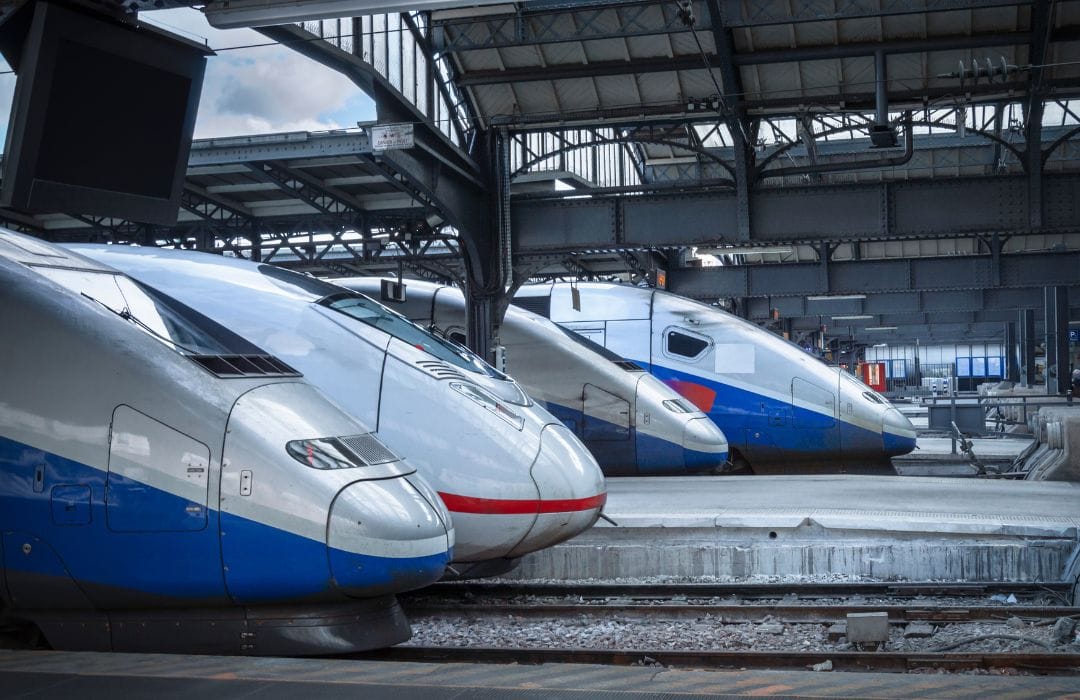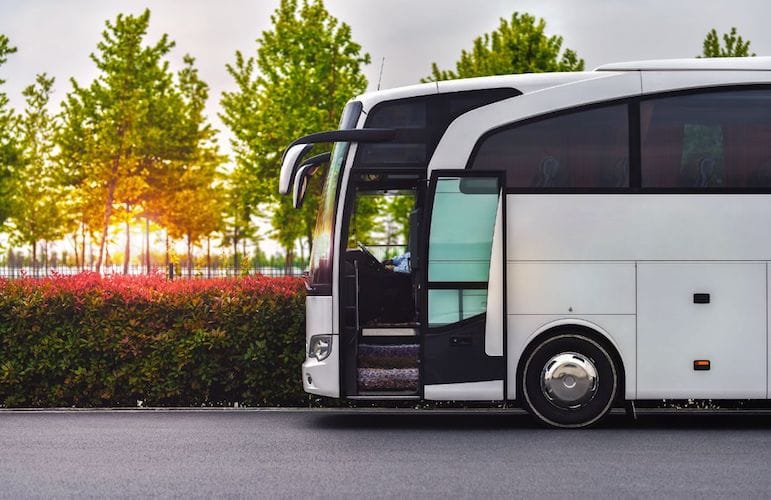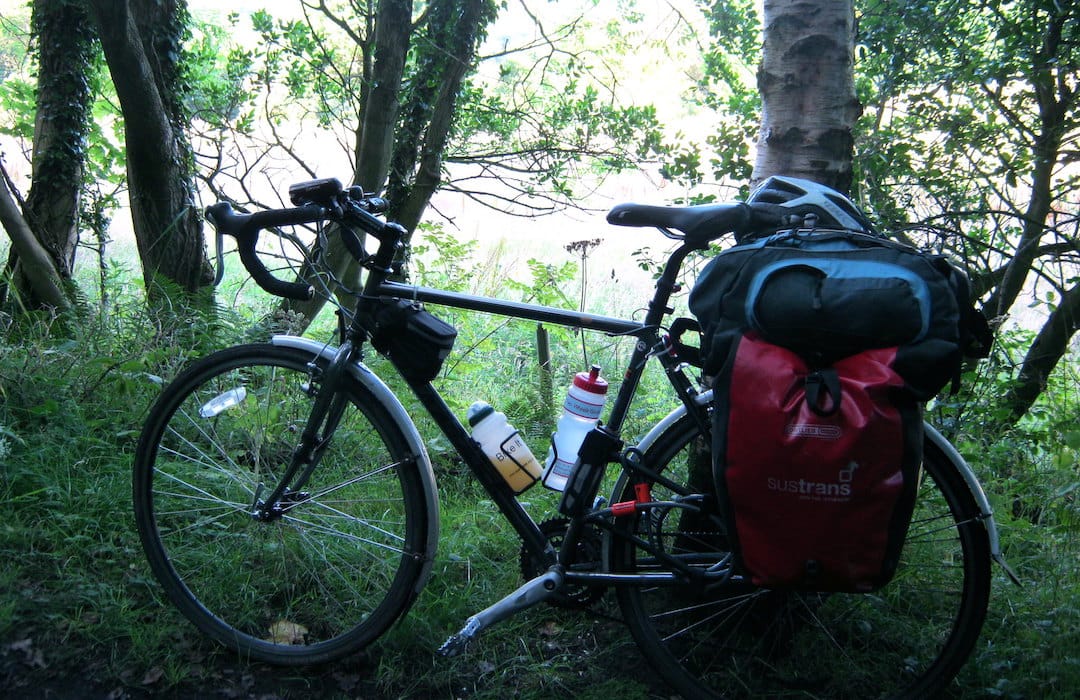
Cycle touring is a fantastic way to travel, requiring very little equipment and giving a unique view of the world. And the engine is you, so depending on what you’re fuelled with, a bike tour can be very low carbon!
Why travel by bike?
- Low emissions
- Adventurous
- Fun
- Keeps you fit and healthy
- Simple
- Cheap
Which is the right bike?
Whichever bike you have is probably the right bike – you can cycle tour on anything. However, if you’re spending many hours in the saddle and carrying everything with you, you’ll probably want something that’s comfortable, strong and has the capacity to fit a cycle rack.
Touring bikes are specifically aimed at the cycle touring market because they are made of reinforced steel so can carry a lot of weight, they have a comfortable riding position, and will have plenty of options for pannier racks. But ultimately, it’s possible to tour on anything!
Touring in the UK
The beauty of cycle touring is that the adventure starts the moment you leave your front door. There are probably many interesting routes near to where you live, so it’s not always necessary to ‘go’ somewhere to start your tour.
The National Cycle Network is a network of traffic-free and on-road routes, managed by the charity Sustrans. The Sustrans website can give lots of inspiration for a UK cycle tour.
Other recommended reading: Lost Lanes by Jack Thurston. These delightful books take you along small roads and forgotten byways in a variety of day-long rides that cover the length and breadth of Britain.
Touring in Europe
Eurovelo is your go-to resource here, with a vast network of way-marked cycle routes that cover all the corners of Europe and everything in between.
The Netherlands is a particular highlight, with world-class cycling infrastructure in towns, cities and countryside. Belgium also deserves a mention, and of course Denmark. But you’ll find something in whichever country you pick – look for the greenways (Voie Verte in France, Vias Verdes in Spain, etc)
Taking your bike on the train
Combining trains and bicycles is a great way to get further afield, and really keeps things low-carbon. Plan ahead, though, and be prepared for things to go askew – it is sometimes very easy to take your bike on the train, and sometimes a real pain.
Intercity/fast trains in the UK require you to make a reservation for your bicycle. You can do this at the time of booking with some providers, for example GWR. If you can’t book your bicycle at the same time as your ticket, contact the rail company via social media and they will book it for you quickly and efficiently.
Slower, local trains don’t require a booking, but you can only take your bike at off-peak times.
In continental Europe, high-speed trains will only carry bicycles if they are in a bag. This can be a very useful option for going far afield, but can be a bit fiddly, so practice dismantling and bagging your bike before you go.
Local, slower trains don’t usually require a reservation, and will have a dedicated space for bicycles. They’re usually a bit cheaper, too, so can be a great option for a hop-on-hop-off tour.
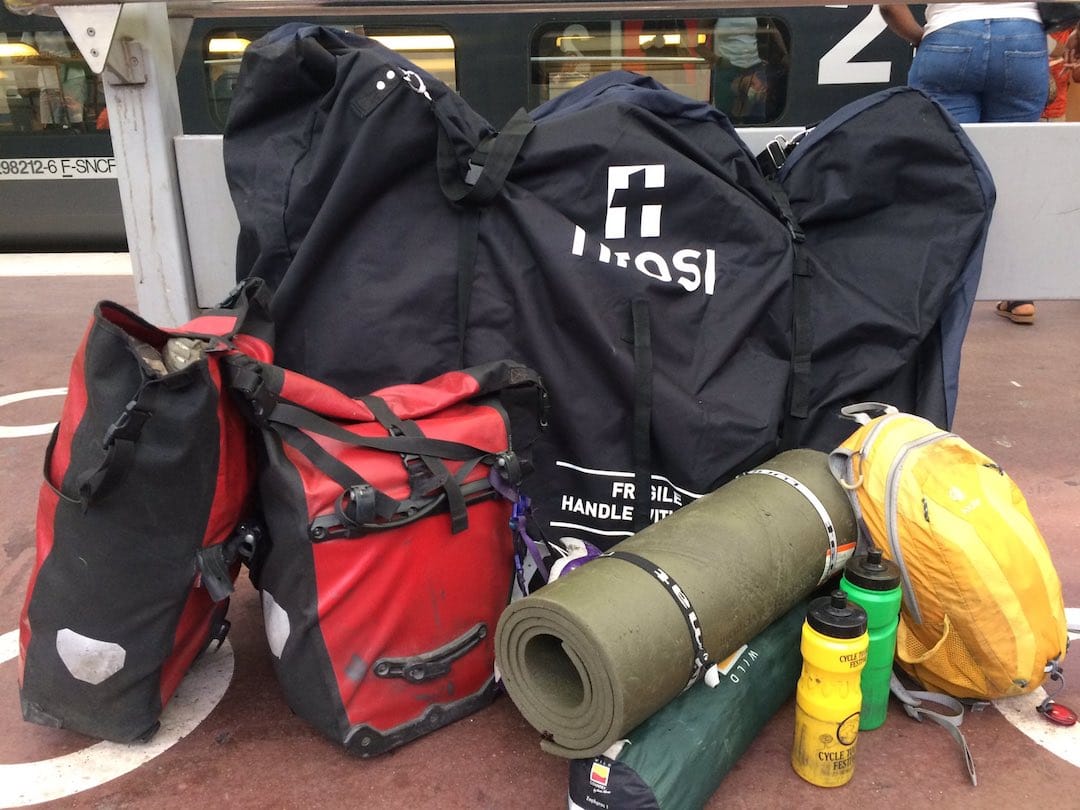
Taking your bike on the ferry
Eurostar is not always bike-friendly, so a better option might be to take a ferry. With ferries to Santander, St Malo, Dieppe, Calais, Dunkirk, Hoek van Holland and many more destinations, the options for where to start your bike tour are extensive. Fares are very reasonable when travelling with a bicycle on a ferry.
Accommodation
Most cities in the UK and Europe have hostels and backpackers accommodation that are very friendly towards cyclists, with facilities to store your bike.
Camping can be a great option, giving you ultimate flexibility with how far you want to ride each day. ‘Wild’ camping is more widely permitted in Europe than it is in the UK, but wherever you pitch up, make sure you respect the land and don’t leave anything behind. A quick internet search will show you nearby campsites, wherever you are.
Food and drink
When you are cycle touring you’ll find that you eat a lot more than usual! Make sure you’re stocked up with plenty of food so as to avoid getting caught out, for example, everything in France shuts for several hours in the afternoon, and most places have early closing on Sundays.
The accepted advice is, ‘eat before you get hungry and drink before you get thirsty’ in order to avoid a sudden energy crash. Part of the joy of cycle touring is the guilt-free eating, so use that as your excuse to get stuck in!
Maintenance
The best maintenance is preventative, so get your bike checked by a qualified mechanic before you leave. It’s also a really good idea to learn how to fix a puncture, as that’s the most likely affliction to occur on a bike tour, and you don’t want it to be a reason not to be able to continue.
